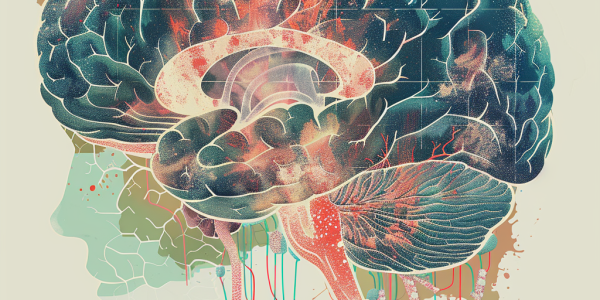New Research Identifies Key Cell Types in Amygdala Linked to Anxiety Disorders
Recent research from UC Davis reveals new insights into the amygdala’s role in anxiety and fear processing. Identifying specific ‘gatekeeper’ cell types within the amygdala, this study highlights potential targets for innovative treatments of anxiety disorders. Published in the American Journal of Psychiatry, the findings emphasize the need for a deeper understanding of cellular functions in emotional regulation, paving the way for more effective therapies tailored to the biological mechanisms of anxiety.
Exploring Human Adaptability: From Echolocation to Private Train Luxury
Discover the fascinating world of echolocation, a skill that allows individuals to navigate without sight. Recent research shows that both blind and sighted people can learn this ability in just ten weeks, revealing the brain’s remarkable adaptability. Explore the science behind auditory processing and the implications for human capabilities, alongside intriguing historical narratives and modern luxury travel experiences.
Revolutionary Prenatal Gene Editing Method Shows Promise for Neurodevelopmental Disorders
Researchers from UC Davis and UC Berkeley have developed a groundbreaking method for prenatal gene editing using acid-degradable nanoparticles. This innovative technique targets neurodevelopmental disorders by delivering mRNA into embryonic brain cells, achieving significant genetic modifications with low toxicity. Published on October 28, 2024, the study highlights a promising approach to treat genetic disorders before birth, potentially revolutionizing therapies for conditions like Angelman syndrome and Rett syndrome.
Walking: A Simple Step to Enhance Mental Health and Cognitive Function
Prioritizing mental health is essential in today’s fast-paced world. Experts, including Dr. Wendy Suzuki, advocate for simple strategies like regular walking, which can significantly reduce anxiety and improve cognitive function. Incorporating physical activity into your daily routine not only elevates mood but also promotes long-term brain health. Discover how small changes can lead to lasting benefits for your mental well-being.
UK Scientists Launch Study on Air Pollution’s Impact on Dementia
British scientists at the Francis Crick Institute are launching the Rapid study to investigate the link between air pollution and dementia. Funded by Race Against Dementia, this groundbreaking research focuses on how PM2.5 particulate matter affects brain health and may contribute to neurodegenerative diseases like Alzheimer’s. The findings could lead to new drug developments and inform public health policies aimed at reducing environmental health risks.
Groundbreaking Study Reveals Brain Structure Differences in Children with Autism
Recent research from the University of Rochester reveals critical structural differences in the brains of children with autism, highlighting lower neuron density in key cerebral regions. This groundbreaking study paves the way for enhanced diagnostic methods and targeted treatments, offering new insights into autism’s neurological foundations. Published in Autism Research, the findings could lead to more personalized interventions for affected children.
Innovative Tools to Enhance Memory and Organization
Discover innovative tools and devices that enhance memory and organization in today’s fast-paced world. From the popular Amazon Echo Dot and Echo Show to traditional notepads and digital trackers, explore effective solutions for managing daily responsibilities, appointments, and medication schedules. Learn how these memory aids can significantly improve productivity and reduce stress.
Understanding Memory Impairment in Aging: Insights from Örebro University Research
Research from Örebro University by Pernilla Andersson reveals significant changes in the aging brain that affect memory and learning. Key findings indicate that declining communication efficiency between brain regions and changes in the hippocampus contribute to memory impairments in older adults. Understanding these cognitive aging processes is crucial for developing strategies to enhance cognitive health and learning capabilities in seniors.
Study Links Wildfire Smoke to Mental Health Issues in Children
Recent studies reveal the alarming impact of wildfire smoke on children’s mental health, linking exposure to increased risks of anxiety and depression. As climate change leads to more frequent wildfires, understanding these effects is vital for public health. Researchers emphasize the need for mental health support and proactive measures to protect vulnerable populations. This Colorado study highlights the urgent call for enhanced mental health resources and community engagement in response to environmental disasters.
Study Reveals Context-Dependent Nature of Fear Responses in the Brain
Recent research from Northeastern University reveals that fear responses in the brain vary based on context, challenging traditional views of fear processing. Published in JNeurosci, the study utilized functional MRI scans on 21 participants exposed to fear-inducing videos, highlighting how different fears activate specific brain regions. This groundbreaking work enhances our understanding of fear and could lead to improved treatments for phobias and anxiety disorders.










